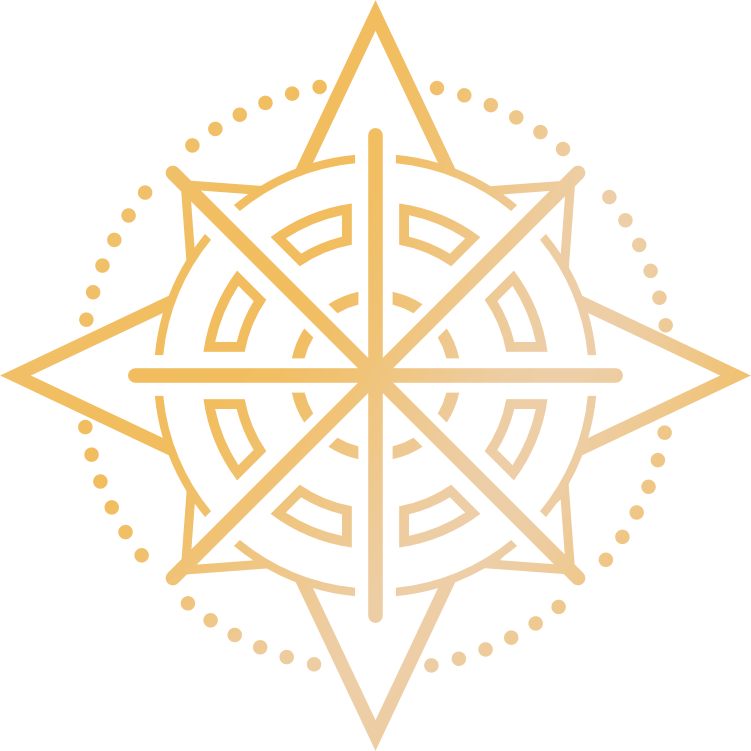Queen of Cups
The Queen of Cups is one of the most emotionally rich and nuanced cards in the tarot deck. She embodies compassion, intuition, and deep understanding—qualities that can guide us toward healthier relationships with ourselves and others. If you’re at a crossroads, feeling vulnerable, or seeking clarity in your emotional life, this card invites you to tune in to your feelings and practice gentle self-care.
Context of the Queen of Cups
In the traditional tarot, the Queen of Cups sits calmly on her throne by the water’s edge, holding a beautiful, closed cup. The water represents emotions, intuition, and the subconscious. Unlike other queens whose cups are open, hers is sealed—suggesting inner mysteries, private feelings, and the importance of boundaries.
This card is often associated with empathy, nurturing, and the ability to listen—not just to others, but to your own inner voice. She is the archetype of emotional maturity and supportive presence, reminding us that strength can be soft, and wisdom can be quiet.
“When you listen generously to people, they can hear the truth in themselves, often for the first time.” — Rachel Naomi Remen
Main Meanings of the Queen of Cups
Upright Interpretation
- Emotional intelligence: You are in touch with your feelings and able to handle them with maturity.
- Compassion and nurturing: You support others with genuine care, offering a safe space for vulnerability.
- Intuitive insights: Your intuition is strong; you may receive subtle insights about situations or people.
- Calm presence: You bring calm and understanding, even in turbulent times.
When the Queen of Cups appears upright, she signals a time to honor your emotional needs, trust your intuition, and approach situations with kindness—both to yourself and others. You might be called to offer support, or to allow yourself to receive it.
Reversed Interpretation
- Emotional overwhelm: You may feel swamped by feelings or unable to process them clearly.
- Neglecting self-care: Giving too much to others can leave you drained and disconnected from your own needs.
- Difficulty expressing emotions: You might suppress feelings or find it hard to communicate them.
- Codependency: Over-involvement in others’ problems at the expense of your own well-being.
When reversed, the Queen of Cups is a gentle warning: Are you losing touch with your own emotional boundaries? It’s time to reflect, regroup, and gently realign with your needs.
Psychological and Self-Development Applications
Emotional Awareness and Regulation
The Queen of Cups teaches us the importance of recognizing and accepting our feelings—without judgment or suppression. This is a key skill in emotional intelligence and personal growth.
- Notice your emotions: Instead of labeling feelings as “good” or “bad,” just observe them. What are they telling you?
- Practice self-compassion: Treat your emotional struggles with the same kindness you would offer a friend.
- Set healthy boundaries: Being compassionate doesn’t mean absorbing others’ pain. Learn to say “no” when needed.
Empathy and Relationships
In relationships, the Queen of Cups encourages genuine empathy—listening without rushing to fix, and being present for others’ emotions. This card can be a prompt to deepen your connections, especially in times of conflict or misunderstanding.
“Empathy is simply listening, holding space, withholding judgment, emotionally connecting, and communicating that incredibly healing message of ‘You’re not alone.’” — Brené Brown
Sometimes, this card can also signal that you’re taking on too much emotional responsibility for others. If you recognize this pattern, it may be time to gently step back and focus on your own well-being.
Intuition and Inner Wisdom
The Queen of Cups is highly intuitive. She reminds us that our gut feelings—those quiet nudges or subtle discomforts—are valuable sources of information. You can use this insight to guide decisions and stay true to yourself, especially when logic alone isn’t enough.
Concrete Steps: Integrating the Queen of Cups
1. Emotional Journaling
- Set aside five minutes daily to write down how you feel. Don’t filter or judge—just let your emotions flow onto the page.
- Notice any recurring patterns. What might these feelings be trying to teach you?
2. Mindful Listening
- In your next conversation, focus on really listening. Resist the urge to give advice or solve problems. Just be present.
- Reflect afterward: How did it feel to simply listen? What did you learn about the other person—or yourself?
3. Boundary Check-In
- Ask yourself: Am I giving more than I can afford emotionally?
- If so, practice saying “no” or setting a small boundary. Notice how it feels to honor your needs.
4. Self-Soothing Ritual
- When you feel emotionally overwhelmed, create a gentle ritual—like making tea, taking a bath, or listening to calming music.
- Allow yourself a few minutes to simply be with your feelings, without trying to change them.
Queen of Cups in Work and Life
In a professional context, the Queen of Cups can represent someone who leads with empathy and emotional insight. Perhaps you’re the “go-to” person for support at work, or you’re being called to infuse more sensitivity into your leadership style.
But remember: Emotional labor is real, and it can be exhausting. Use the Queen’s wisdom to balance caring for others with caring for yourself. In moments of workplace stress or conflict, pause and ask: What am I feeling right now? What do I need?
Final Thoughts
The Queen of Cups is not about predicting the future. She’s about tuning in to the present moment, honoring your feelings, and finding the courage to care—for yourself and for others.
Tarot is not fortune-telling — it’s a mirror for reflection and growth.
